A sprouting subscription service kept this microgreens farmer growing during the pandemic
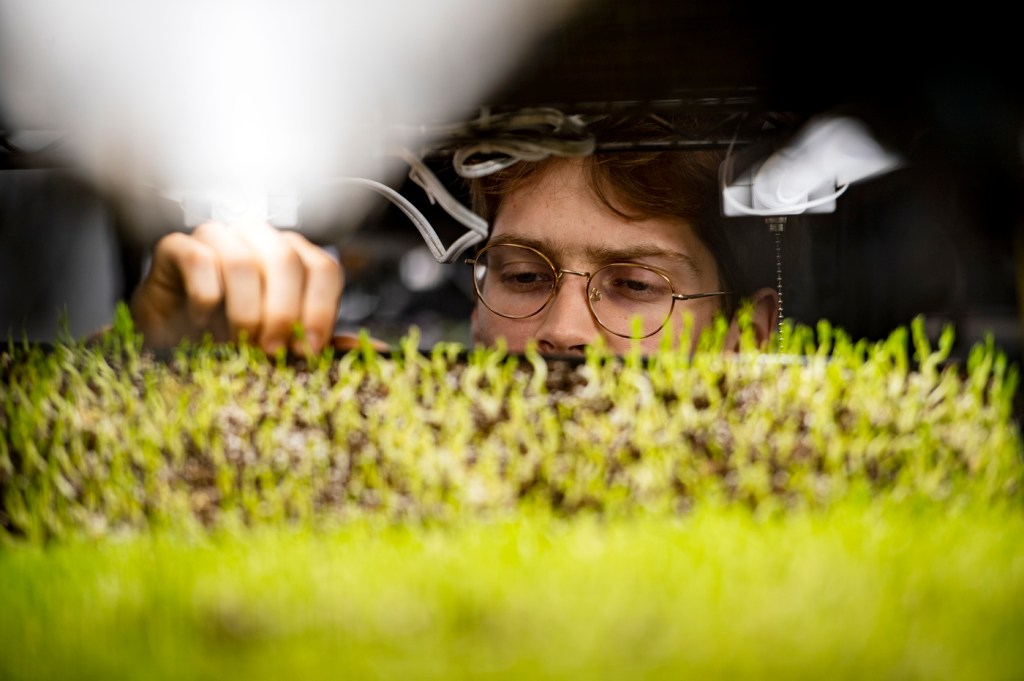
Oliver Homberg’s urban farm had grown rapidly before the pandemic, so fast that he expanded his roster of flavor-packed microgreens to include offerings like garlicky Chinese Mahogany and red Shiso, a Japanese plant from the mint family.
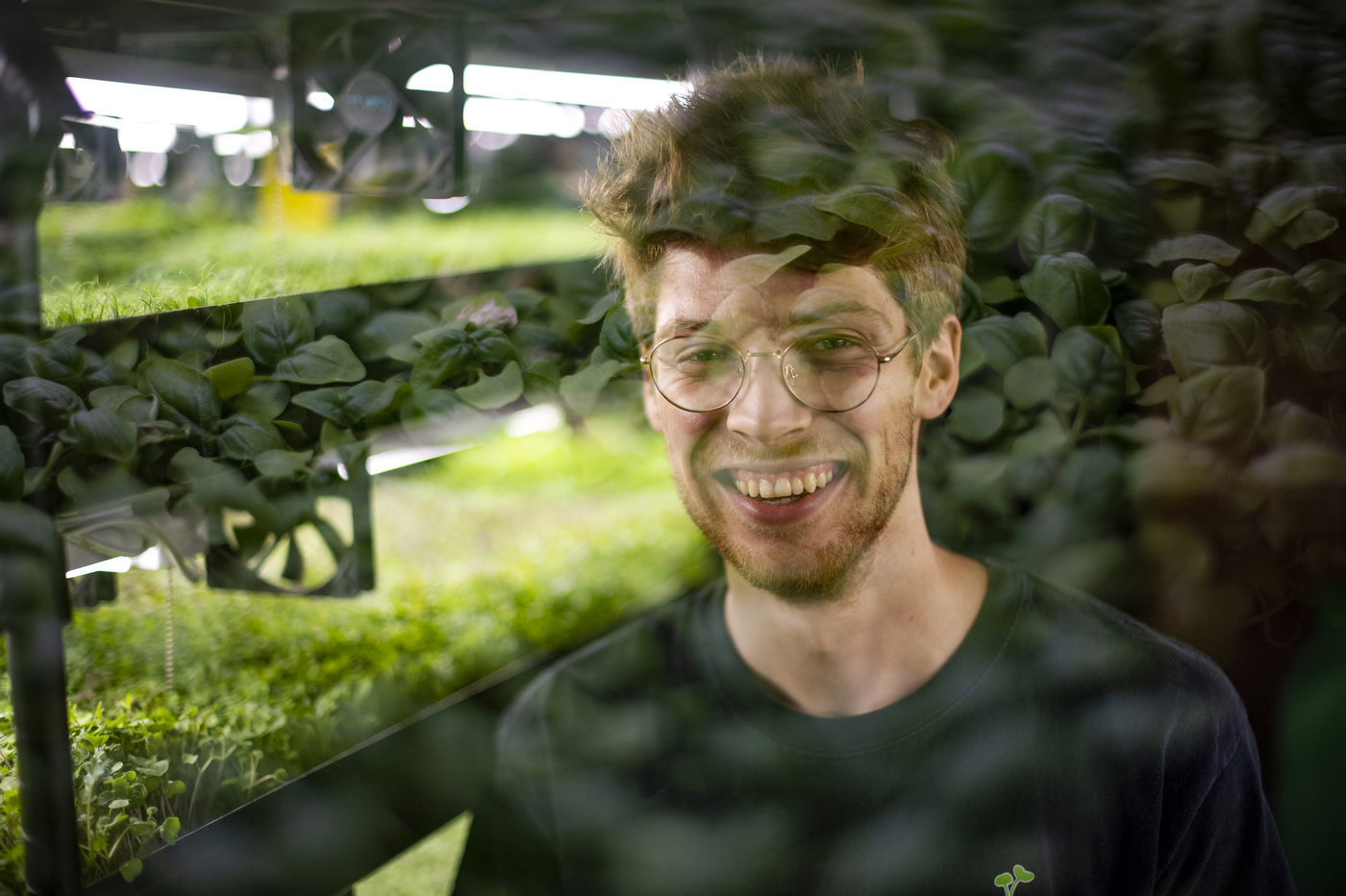
Boston Microgreens co-founder Oliver Homberg poses for a portrait. Photos by Alyssa Stone/Northeastern University
Homberg, who earned his international affairs degree from Northeastern in 2013, began Boston Microgreens in 2018 and had cultivated a clientele from among the top chefs in the greater Boston restaurant scene.
“I had finally paid myself my first paycheck and then: boom. The pandemic,” says Homberg, who grows racks of flavorful, nutrient-packed microgreens in the basement of a renovated brick and beam building in South Boston. The greens, often used to add color and flavor to meals, are the first leafy stems of vegetables like kale, swiss chard and beets.
Within a few weeks of the state-imposed shutdown, all of Homberg’s clients were gone.
“It was scary to see Boston restaurants losing that much money and knowing that my business model was directly linked to that. Especially not knowing how long they’d be gone or if they were coming back,” says Homberg.
Boston Microgreens had two things going for it, however. First, Homberg’s only staff member decided to leave the company and move to Maine, which meant no one would go without a paycheck except Homberg.
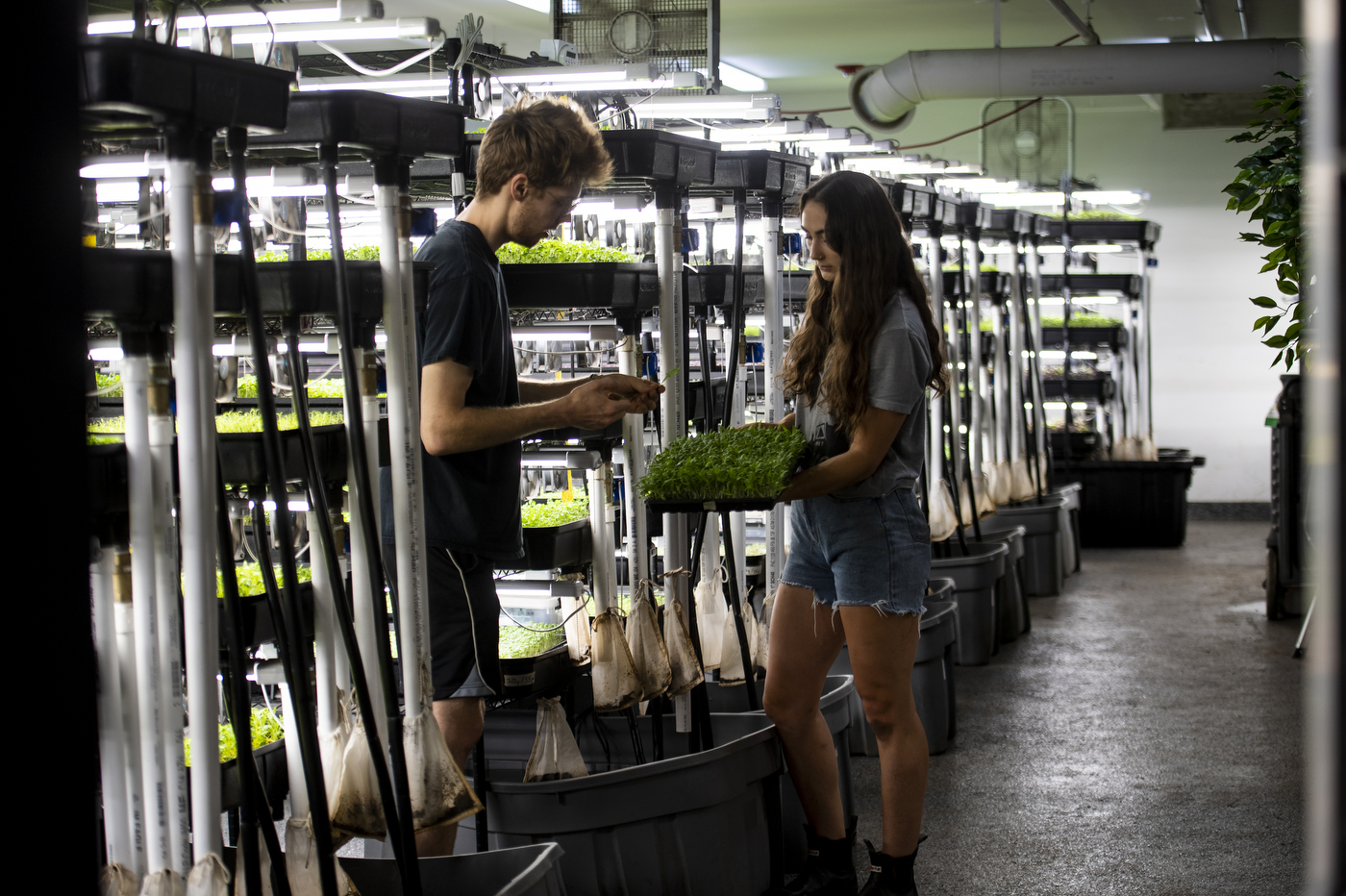
Second, an international, active community of microgreens farmers helped Homberg navigate the shutdown and diversify his business model.
“I was having conversations with a lot of other microgreens business owners and asking them, ‘What are you guys doing? We’d been trying to push residential, but we don’t know how to format it,’” Homberg says. After a discussion with Canadian microgreens company Micro Acres, Homberg decided to offer monthly subscription-based residential sales.
“People really responded to the subscriptions. People are at home a lot more and cooking, and they’re also becoming more health conscious. We’re a local, sustainable company which I think most people appreciate,” Homberg says.

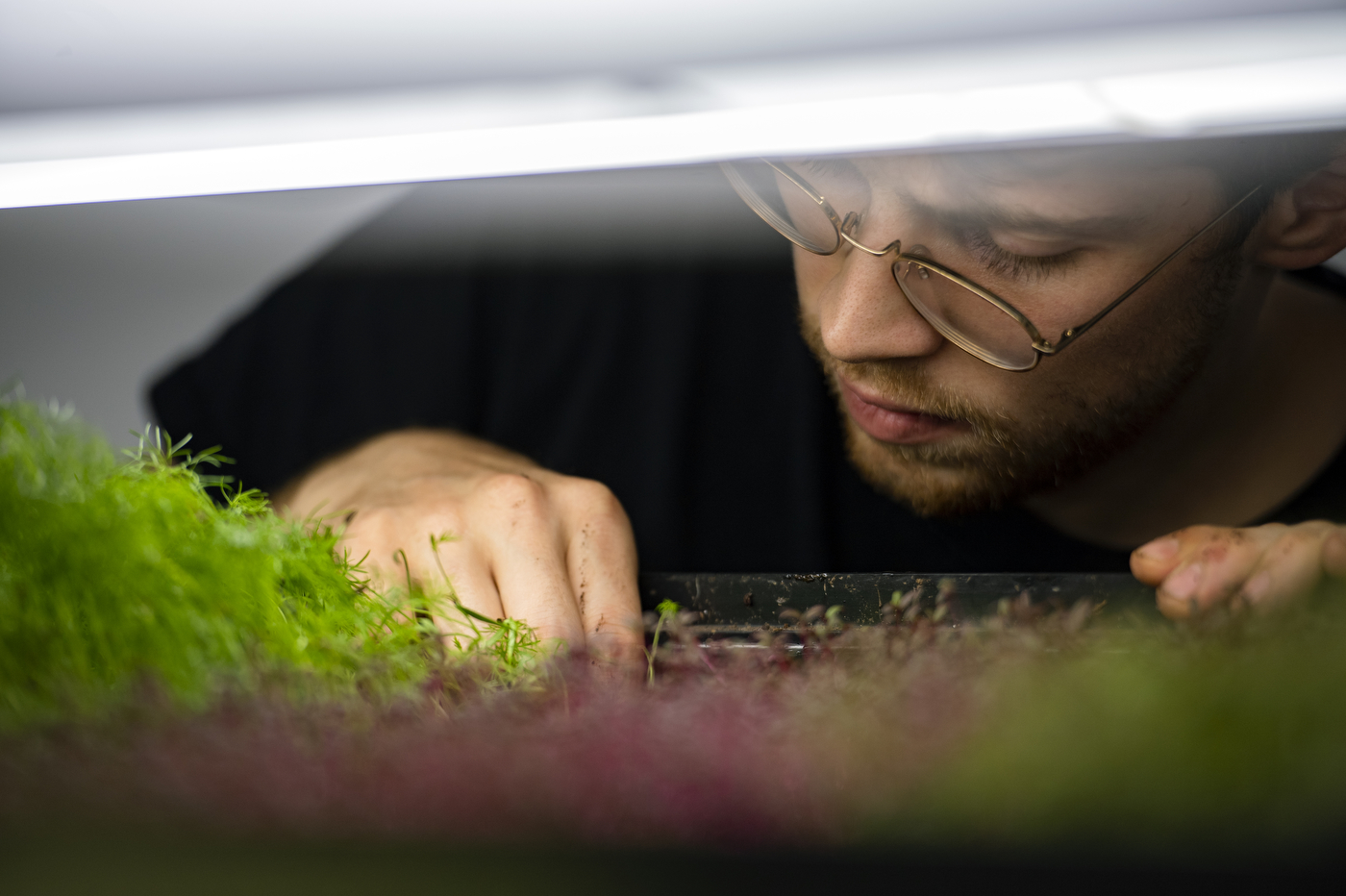

Homberg, who decided he wanted to grow local produce after he graduated, started the business with a roommate in his apartment after watching dozens of YouTube videos about farming microgreens. The project quickly grew into a passion.
“We had racks everywhere. I mean, I had no living space—they were in the living room, on the dining room table, it was all racks. There was just dirt all over the place,” laughs Homberg.
His roommate moved on from the business and Homberg expanded his operations to South Boston. The basement farm is bursting with various shades of microgreens sprouting along 12 towering racks of stacked shelves lit by florescent bulbs. The greens, supported with hydroponic technology, will grow anywhere between a few days to a few weeks before they’re cut and packaged for delivery.

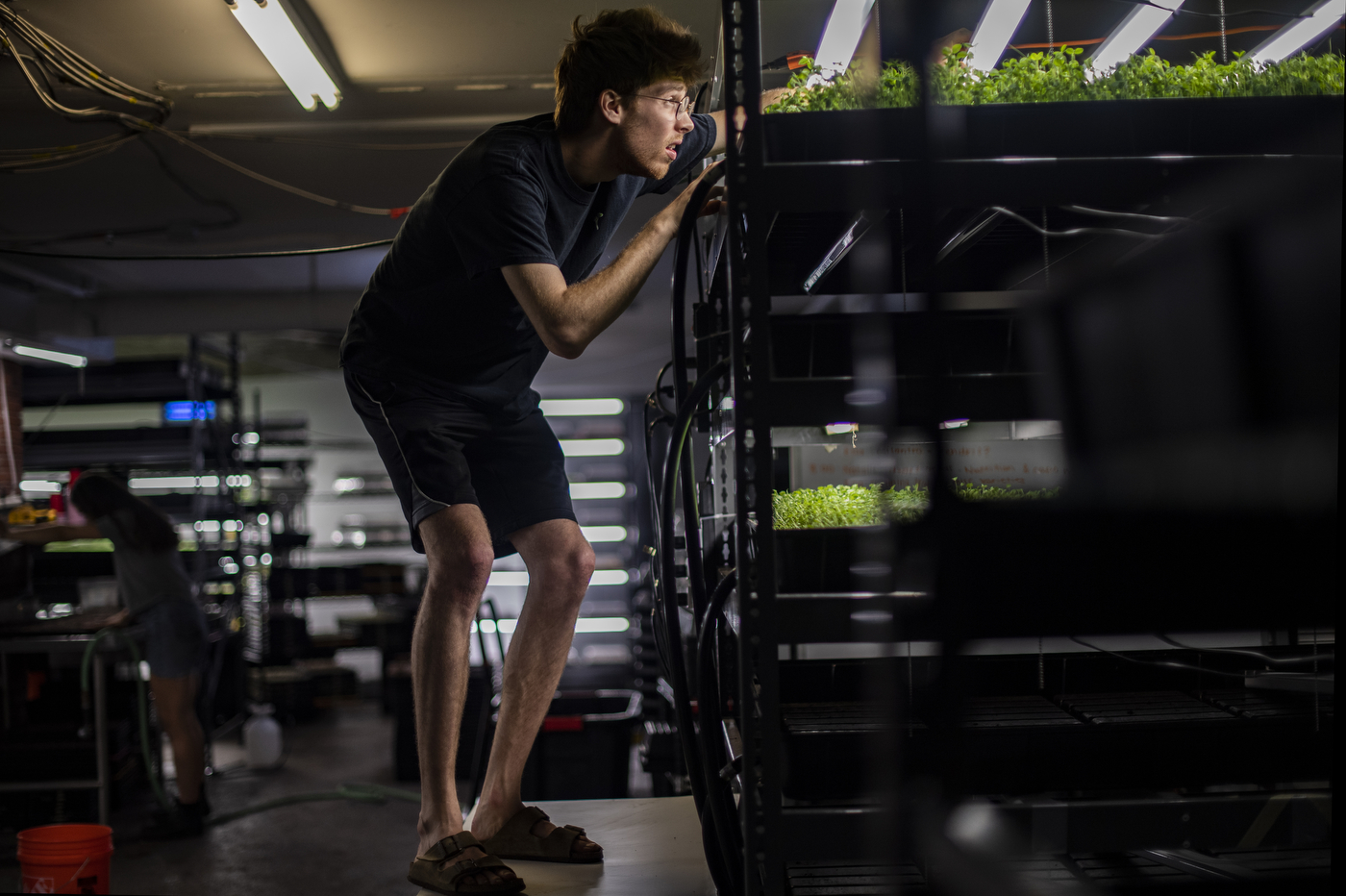

Homberg says the number of restaurants buying from Boston Microgreens has doubled since Massachusetts fully reopened, and supermarkets like Whole Foods began carrying the greens at local branches. He’s been able to hire four new staff members, most of them former co-ops.
As a new business owner with sky-high standards, Homberg originally spent sleepless nights relentlessly reworking his sales plans or figuring out how to out-maneuver his competition. The pandemic gave him a chance to reassess his priorities and grow confidence in his product—a key factor for business owners.
“We eat this at home, and there’s so many people who live near us who we also knew would love it. We knew there was a market for this kind of product,” says Homberg.
He wishes he pivoted a little faster and had been able to expand his clientele sooner, but Homberg says that overall the shutdown helped him gain perspective.
“I think we all learned to calm down a little. Having a little bit more distance from the day-to-day concept of society gave me some time to realign my values,” he says.
For media inquiries, please contact media@northeastern.edu.





